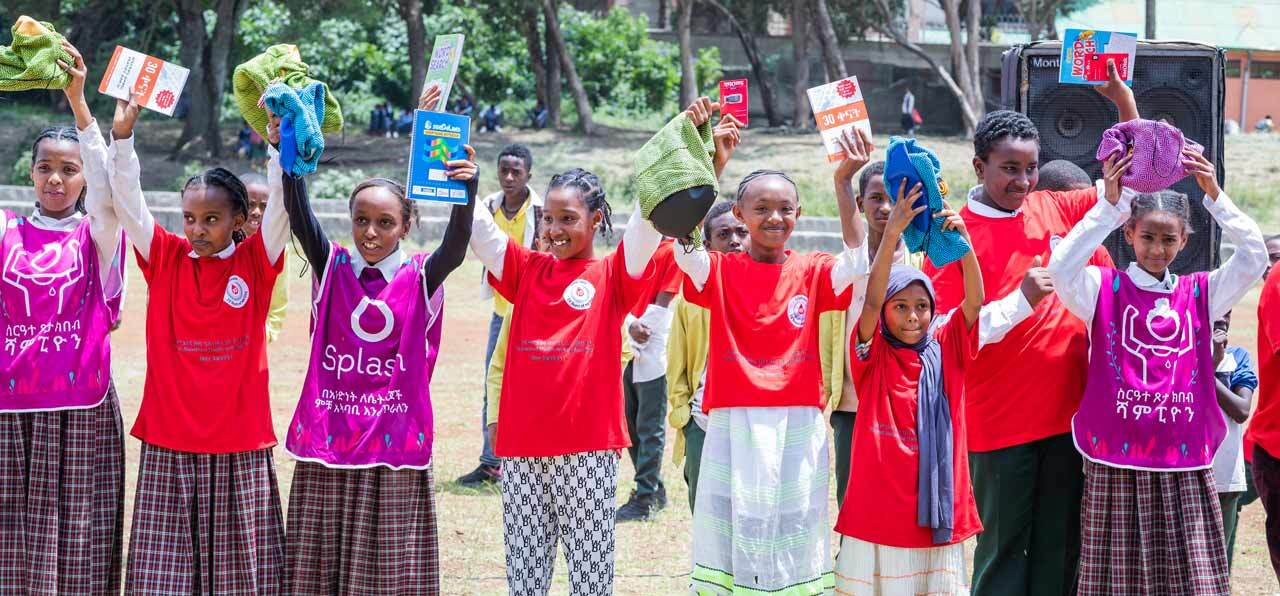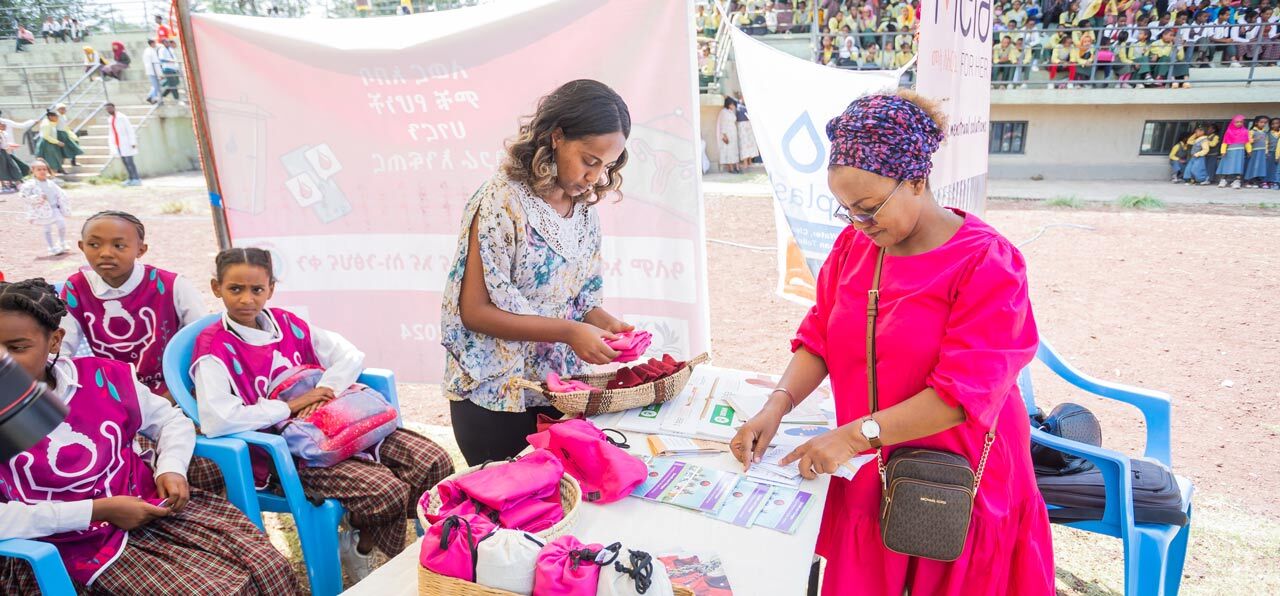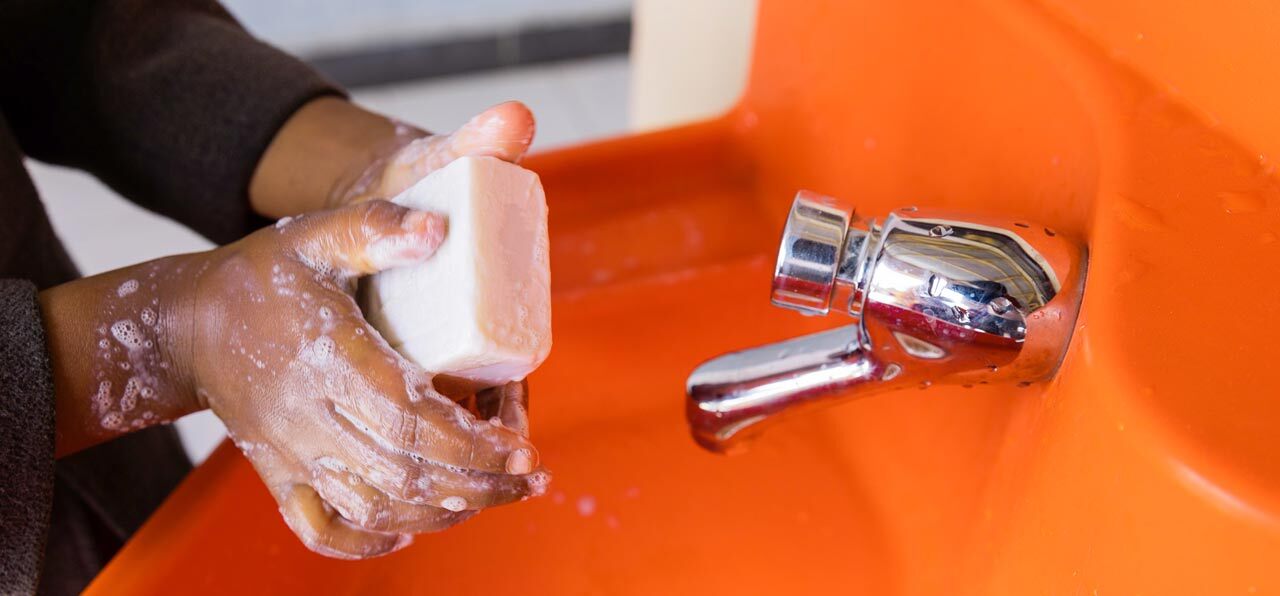Articles and information about Splash and the work we do.

June 7, 2024
Celebrating Menstrual Hygiene Day in Addis Ababa

By Eskinder Endereas, WASH Promotion Manager
Global Menstrual Hygiene Day is celebrated to embrace the dignity and rights of menstruating people, recognizing this as an essential component of fundamental human freedom and bodily autonomy.
Insufficient resources to manage menstruation, as well as patterns of exclusion and shame, undermine the human dignity of countless women and girls worldwide. Hundreds of millions lack access to menstrual products and appropriate facilities for menstrual health management. Unfriendly physical environments combined with negative social ecosystem aggravate the challenges people face in managing menstruation with dignity. This perpetuates a cycle of exclusion, negative health impacts, and reduced participation in social and economic activities.

Gender club members performing at the Menstrual Hygiene Day celebration
Bearing this in mind, this year's Menstrual Hygiene Day on May 28, 2024, is celebrated under the theme "Together for a #periodFriendlyWorld," with an aim to break down barriers to accessing menstrual-friendly infrastructure such as sanitation facilities, rest areas, sanitary pads, water, and soap, as well as foster a more supportive social environment.
Splash collaborated with the Bole Community Primary School's Hygiene club and Gender club, teachers, and school leadership to host a colorful event on the 4th of June. Attendees included guests from neighboring schools, as well as representatives from the Bureau of Education, Health, Design and Construction, and local media.

Students presenting on Menstrual Hygiene Day. Splash's programs involve boys in menstrual health and gender trainings.
In his keynote speech, Muluneh Teklebirhan, the Bureau of Education Construction Monitoring Team Lead, highlighted Splash's successful partnerships with government stakeholders to increase access to WASH facilities and drive behavior change around hygiene and menstrual health among schoolchildren. This has led to improved confidence among menstruating girls. He emphasized the importance of local ownership and long-term sustainability of WASH interventions.
Splash Ethiopia's Country Director, Yodit Zenebe, provided an overview of the organization's 14-year journey in Ethiopia and other countries, working with the government and schools to scale up WASH access and behavior change. She noted that girls often face challenges accessing information about puberty and menstruation, as well as inadequate menstrual health-friendly facilities such as sanitation, water, soap, and rest areas - factors that contribute to poor academic performance and participation.
To address these gaps, Splash and its partners have constructed several sanitation blocks, handwashing and drinking stations, water storage and filtration systems, and provided capacity-building training for gender champions, hygiene ambassadors, and teachers at over 387 schools (and counting!) in Addis Ababa.

Cutting the ribbon for the new sanitation blocks
In closing, Yodit underscored the critical importance of partnerships and collaboration in increasing access to and sustaining WASH facilities, as well as ensuring ongoing support for hygiene and menstrual health promotion activities.
The event concluded with presentations, performances, and competitions by the school's gender champions and hygiene ambassadors, all centered around the theme of menstrual health.
Additionally, one of newly constructed sanitation blocks, designed specifically for girls and with amenities like showers, a room for children with disabilities, ventilation, lighting, and handwashing facilities, was inaugurated by Splash, the Education Bureau, and the invited guests.

One of the new sanitation blocks, equipped with lighting, ventilation, child-friendly toilets, and handwashing stations.
Learn about Splash's menstrual health and hygiene programs here and support our work here!

